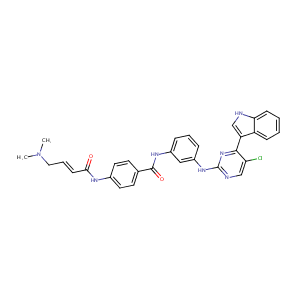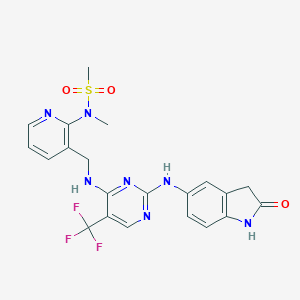| 1 |
Recurrent recessive mutation in deoxyguanosine kinase causes idiopathic noncirrhotic portal hypertension.Hepatology. 2016 Jun;63(6):1977-86. doi: 10.1002/hep.28499. Epub 2016 Mar 31.
|
| 2 |
Super-Enhancers Promote Transcriptional Dysregulation in Nasopharyngeal Carcinoma.Cancer Res. 2017 Dec 1;77(23):6614-6626.
|
| 3 |
ClinicalTrials.gov (NCT00666926) Study Of PF-00562271, Including Patients With Pancreatic, Head And Neck, Prostatic Neoplasms. U.S. National Institutes of Health.
|
| 4 |
Targeting transcription regulation in cancer with a covalent CDK7 inhibitor. Nature. 2014 Jul 31;511(7511):616-20.
|
| 5 |
Inhibition of focal adhesion kinase by PF-562,271 inhibits the growth and metastasis of pancreatic cancer concomitant with altering the tumor microenvironment. Mol Cancer Ther. 2011 Nov;10(11):2135-45.
|
|
|
|
|
|
|


